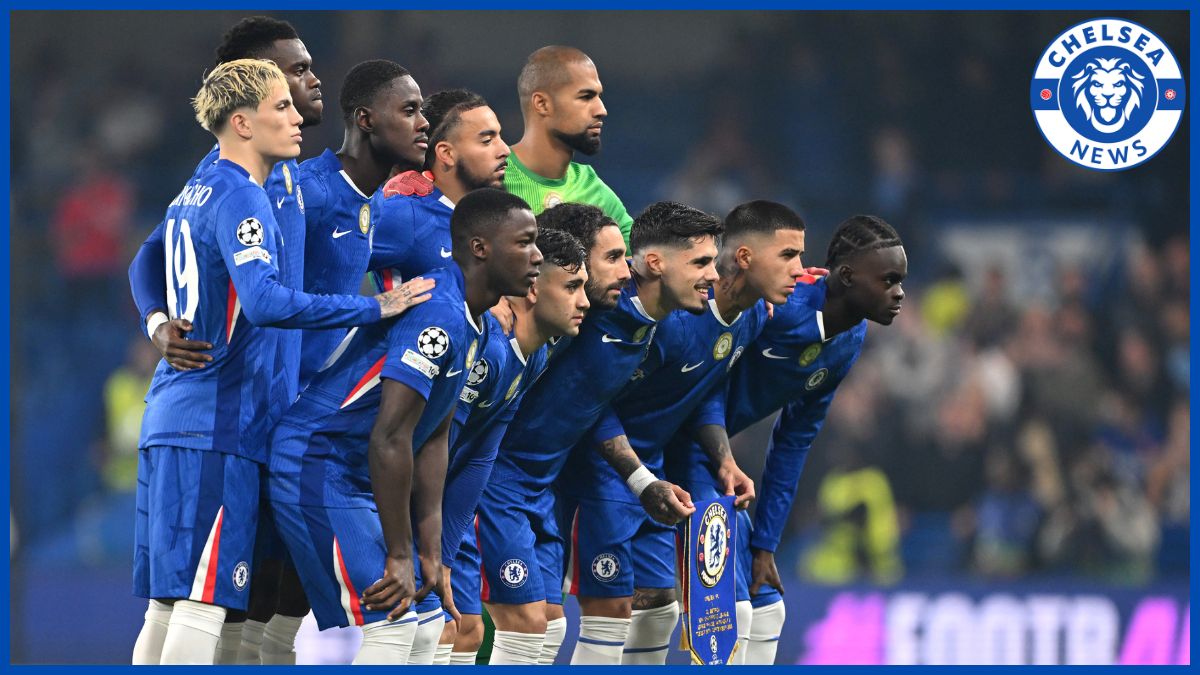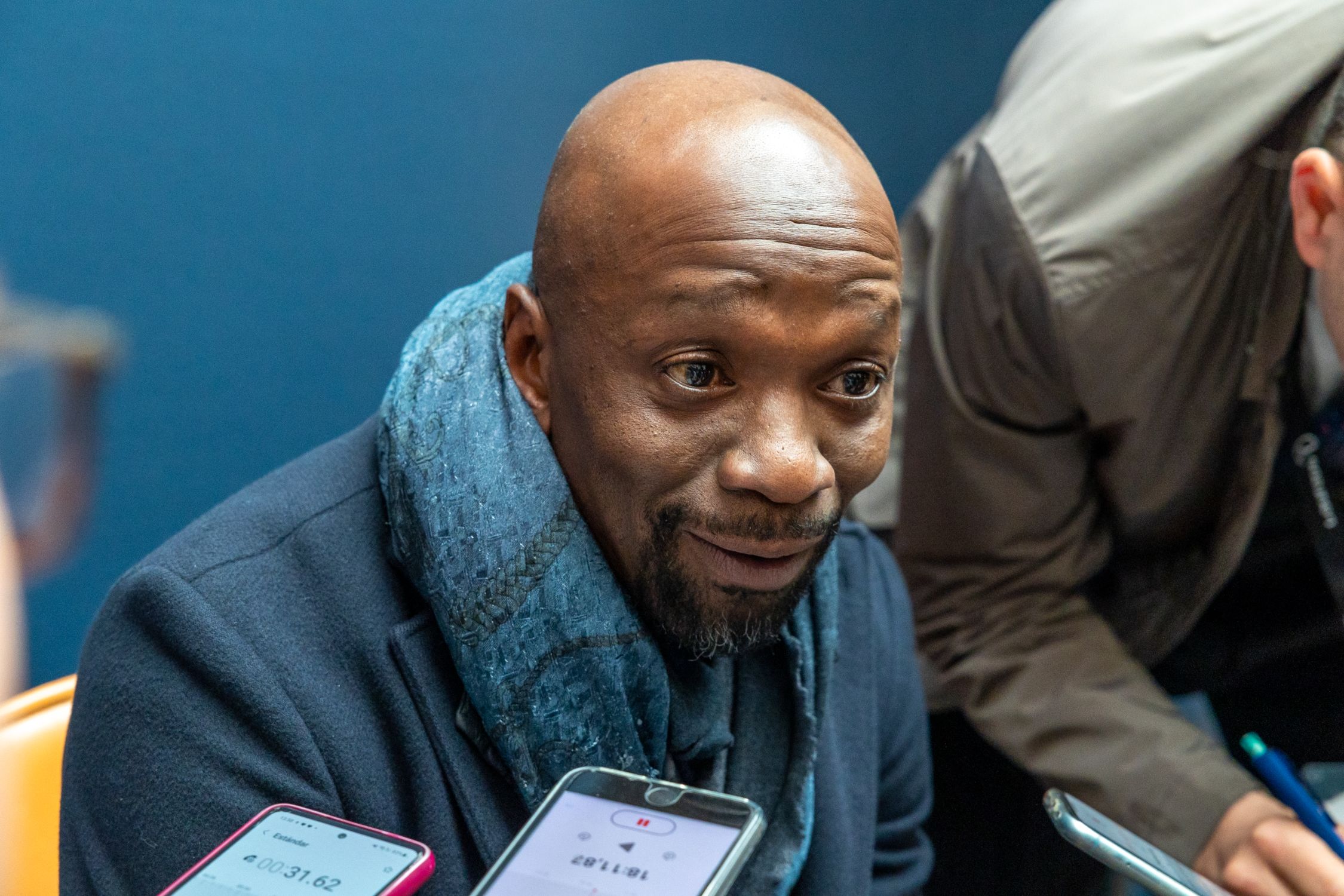Chelsea’s Ambitious Youth Project: A Modern-Day David vs Goliath or Just Another Failed Experiment?
The narrative surrounding Chelsea Football Club in recent months has been one of significant transformation and ambition. With a renewed focus on developing young talent and a different recruitment model, the club has positioned itself as a potential contender for the Premier League title. This shift hasn’t gone unnoticed; former Chelsea midfielder Claude Makelele has come forward to express confidence in the project, noting how many clubs are taking cues from Chelsea’s strategy. However, the path to success is fraught with skepticism and challenges that echo broader themes in sport and society.
Chelsea’s historical backdrop is filled with glory, particularly in the last two decades, when the club rose to prominence after the investment of billionaire owner Roman Abramovich. This influx of funds enabled the acquisition of world-class talent and the construction of a squad capable of winning multiple titles, including the UEFA Champions League and Premier League. However, such success also carried expectations and a cycle of instant gratification, leading to volatility in managerial appointments and strategies. The club often sought quick fixes in the form of experienced players, which sometimes led to bloated wages and a lack of long-term planning.
The recent pivot to a youth-centric approach stands as a departure from this trend. Under new ownership and management, Chelsea has embraced a strategy that emphasizes young, talented players. This is not merely about signing starlets; it involves a holistic redevelopment of the club’s ethos. The appointment of coaches adept in nurturing young talent has been crucial in molding this new identity. The belief is that by investing in youth, the club can build a sustainable and competitive squad that will yield dividends in both performance and potential value appreciation.
Nevertheless, skepticism permeates this unfolding narrative. Fans, while hopeful, are wary given the club’s inconsistent performances and a recruitment strategy that still requires polishing. Critics argue that relying solely on youth may expose the squad to inexperience in high-pressure situations, such as title races and knockout stages in European competitions. The Premier League is known for its intensely competitive nature, and the challenge of integrating young players with varying levels of maturity and experience cannot be understated.
Makelele’s assertion that others are beginning to mimic Chelsea’s approach highlights an ongoing trend in football where clubs are reassessing their financial models amidst economic pressures, particularly in the post-pandemic era. With financial fair play regulations tightening and more clubs recognizing the risks of over-reliance on aging players, a shift towards nurturing young talent appears inevitable. Teams like Manchester City and Arsenal have also been ramping up their focus on youth, with mixed results. Such trends suggest a broader systemic change in football where sustainability is becoming a priority over short-term gains.
The benefits of Chelsea’s approach are multifaceted. Firstly, there’s the financial advantage. Young players often come with lower wage demands and transfer fees, making them cost-effective options that can significantly enhance a club’s financial health. Moreover, developing players from within fosters a culture of loyalty, which encourages athletes to grow with the club, thereby strengthening team cohesion. Long-term investment in youth development can yield returns far exceeding those from purchasing established stars, who may only offer transient success.
However, it’s essential to consider potential pitfalls. The pressure to perform in a results-oriented environment often leads to young players facing harsh scrutiny, which could stifle their growth and confidence. Clubs must strike a balance between integrating youth and maintaining enough experience in the squad to navigate the demands of a grueling season. Additionally, the risk of player turnover increases as young talents capture the attention of wealthier clubs, which can destabilize efforts to create a cohesive unit.
For Chelsea, the question remains not just about the quality of their young players but also whether they can create an environment that genuinely fosters excellence. The psychological aspect of nurturing young talent is crucial; they require not just game time but the right mentorship and support systems to flourish. The integration of analytics and sports science into training can only enhance their development, as clubs increasingly rely on data to inform decisions and improve player performance.
Despite the criticism and doubts, Makelele’s remarks serve to highlight an important aspect of modern football—the need for clubs to innovate and adapt or risk being left behind. The footballing landscape is evolving, and methodologies that once guaranteed success are falling out of favor. Chelsea’s bold approach could either set them apart as pioneers in a changing game or lead them into a new cycle of disappointment if their investments do not pan out.
While the project embodies a vision filled with potential, it also thrives on the principles of resilience and adaptability, akin to the story of David challenging Goliath. Chelsea aims to redefine the narrative of success in today’s football, advocating for a blend of youth and strategy that echoes sentiments resonant in various facets of contemporary society. As the club navigates this ambitious journey, it remains to be seen whether it will ultimately triumph as champions or succumb to the pressures of expectation. The road ahead is undoubtedly fraught with challenges, but Chelsea’s trajectory will be closely scrutinized, a testament to the club’s profound impact on the footballing world.

One former Chelsea star believes that Chelsea are in for a shot of winning the Premier League title and others are copying them.
Not everyone will share this opinion or has shared it for quite some time, and many Chelsea fans are still yet to be convinced by the current project and recruitment model being used at the club.
EXCLUSIVE! When Cole Palmer is expected to return to the Chelsea squad – plans laid out!
However, there are also many out there who are backing it and believe it is a very good model and it will bring success back to the club over a sustained period.
I think it has some big positives about it, but it also has some flaws too. I do think that overall, Chelsea have built a strong squad right now even if it could still very much be strengthened in certain areas.
But former Chelsea star Claude Makelele is backing the project and he also says that he sees others now copying Chelsea’s model, it is THAT good!
Makelele on Chelsea

Claude Makelele gives an interview. (Photo by Marc Piasecki/Getty Images for Laureus)
In an interview with The Sun this week, Makelele said:
“In the beginning, nobody believed in the project, with so many young players. People were worried about not being able to win the Premier League.
“Now, many teams want to copy Chelsea by buying young players. I think they are understanding now, they could be fighting for this title.”
In other news today
We’ve put out our predicted starting Xl for Chelsea tonight in our Champions League clash against Qarabag after the full travelling squad was confirmed for the game last night.
Only one Chelsea player made the Who Scored Team of the Week for the latest round of Premier League matches over the weekend, and it wasn’t Moises Caicedo, who you would have expected it to be!
